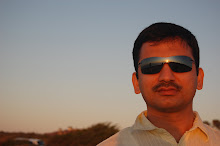Microsoft is keen on doing pure research in India that would show how "computing could impact rural areas and benefit emerging markets", says a senior scientist-businessman who heads the company's main research centre in the United States.
In the bargain, more of its products could also get established in the country he says.
Microsoft Research's Bangalore centre is the third overseas research facility after one in Cambridge, started 1996, and another in Beijing started the next year. Half the 700 people at Microsoft Research work overseas, including now, those in Bangalore.
"A small group of outstanding people we have put together in Bangalore will focus on research that might have an impact on the lives of Indians in the villages... for this we are not only doing hardcore computer science, but also working with social scientists and ethnographers," Daniel T Ling, corporate vice president of Microsoft Research told.
Ling, one of the key people at Microsoft Research, is very clear that "while the 700-odd people of Microsoft Research do pure research," in Redmond, San Francisco, Cambridge, Beijing and now Bangalore, "we would very much want as much of this work to make the transition to commercial products."
So work that P Anandan, Microsoft Research India's, managing director and his small team will do in Bangalore, could for instance help build software programmes that will be available to Indians in their own languages.
That is where the social scientists and the ethnographers come in, helping with cultural nuances and finding local language equivalents to words that describe various functions on the computer screen, for instance.
Much of this is already reality through the local language initiatives the company is funding in its markets. What will be exciting in the days to come will be, say, the access a farmer will get to the results of the best university research on soil testing, crop patterns and other information immediately relevant to him, in his own language literally at the touch of a few buttons.
"Last year, Kentaro Toyama, who will be the assistant managing director of Microsoft Research India, made a whistle stop tour of key centres of research in India and also looked at initiatives such as the ITC's e-chaupals. The work that his and Anandan's team will do will definitely factor in such initiatives," Ling says.
In the US, a team in the company's San Francisco research lab has already done work on making huge databases available to a large number of people "on the web in a standardised manner". Maps from the US Geological Service or data on agricultural research can be accessed in an advanced pilot called Terra Server.
Work in the US was spread across a wide spectrum including many promising areas of computer science systems, networking, natural language, speech recognition, artificial intelligence, reasoning under uncertainty, databases and software tools.
Technologies these people are working on include ways to tackle spam (unwanted e-mail for intance), software programmes that will pull information from huge databases to help retail banks to grocery super chains to track customer behaviour, tools (software programmes that will help build other software applications) in areas such as computer security, re-directing people away from traffic gridlocks using signals captured from a network of sensors placed along different routes and software that will prioritise what in a web page is important, especially when viewed on a cell phone screen.
Another important technology is software that will 'decide' which messages or missed phone calls are important and route them accordingly to a mobile phone or a computer or fax. So if you are on a well deserved holiday away from everything, a call from your children could be directed to your cell phone but one from your boss could go to a computer at home.
In the future, just about everything will have a computer "buried in it" and the trick is to make them work well together, says Ling.
For instance, if you are watching a movie on your cell phone in the back of a taxi, once you reach home you should be able to switch to a television or a computer without missing any of the movie.
This means that the technology that runs your cell phone must talk to your television. This is happening, and sooner than one thinks, such cell phones and televisions will also emerge in the market, he says.
Subscribe to:
Post Comments (Atom)

No comments:
Post a Comment